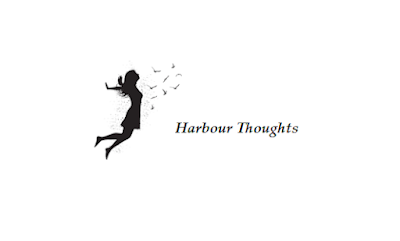Canadian Voyageurs on the Nile
By James McIntyre
The British soldiers on the Nile
With gratitude did kindly smile,
On the Canadian voyageurs
Who skilfully did ply their oars.
And they invoked their benison
On boatsmen led by Denison,
Neither the rapids nor the falls
Along the Nile these braves appals.
For in such toils they did partake,
On each native stream and lake,
Thoughts of their homes in visions throng,
While singing Canadian boat song.
And they all hoped again to see
The glorious land of maple tree,
From their memories they never
Forgot the land of lake and river.
While up the Nile they do advance
They dream about their own St. Lawrence,
And Manitoba's streams and lakes,
Pleasant reflections oft awakes.
And thus each day they cheerful toil,
Ascending of old Father Nile,
Whose waters fertilize the soil,
And is the home of crocodile.
Wolseley he had exhibition
In Red River expedition,
How these voyageurs could steer,
Or with the axe a roadway clear.
Those who speak the tongue of France,
From the banks of the St. Lawrence,
At call to arms quick advance,
With rifle, bayonet and lance.
Poem Analysis:
James McIntyre’s poem “Canadian Voyageurs on the Nile” serves as a tribute to the Canadian voyageurs who participated in military operations along the Nile River, particularly during the British campaign in Egypt in the late 19th century. The poem intertwines themes of national pride, the spirit of adventure, and a nostalgic longing for home, showcasing the unique experience of these Canadian adventurers.
Structure and Form
The poem employs a consistent rhyming scheme, which enhances its lyrical quality and allows for an easy flow of ideas. The AABB rhyme scheme provides a rhythmic cadence that complements the subject matter—waterways and exploration. This structure reinforces the connection to the traditions of folk songs, echoing the cultural heritage of the voyageurs and their way of life.
Characterization and Imagery
The voyageurs are portrayed as skilled and brave individuals, capable of navigating the challenges posed by the Nile, such as rapids and falls. Lines like “neither the rapids nor the falls / Along the Nile these braves appals” emphasize their resilience and expertise in a foreign environment. This characterization not only highlights their physical prowess but also evokes a sense of admiration from the British soldiers, who regard them with “gratitude” and “kindly smile.”
The poem is rich in imagery that connects the Canadian voyageurs’ experiences in Egypt to their homeland. References to “the glorious land of maple tree” and “the land of lake and river” create a juxtaposition between the familiar landscapes of Canada and the exotic setting of the Nile. This imagery evokes a sense of nostalgia, suggesting that while the voyageurs are physically distant from their homeland, their memories and cultural identity remain intact.
Themes of National Identity and Longing
One of the prominent themes in the poem is the longing for home. Despite their current situation, the voyageurs often reflect on their homeland, singing “Canadian boat song” as a reminder of their roots. The connection to the St. Lawrence River and Manitoba’s streams reinforces the idea that their experiences in Canada continue to shape their identities, even as they engage in new adventures abroad.
The poem also touches on the theme of camaraderie among the voyageurs and their British counterparts. The mutual respect and gratitude between the soldiers and the Canadian boatmen illustrate a sense of unity in a shared mission. The phrase “thoughts of their homes in visions throng” captures this sentiment, suggesting that while they toil in a foreign land, their thoughts remain anchored in their shared identity and experiences.
Historical Context
The poem alludes to the Red River Expedition led by Colonel Wolseley, which sought to maintain Canadian sovereignty in the West and protect the interests of the Hudson’s Bay Company. By referencing this historical event, McIntyre situates the voyageurs within a broader narrative of Canadian exploration and military history. This context enriches the poem’s themes of bravery and national pride, illustrating the significance of their contributions in both domestic and international spheres.
“Canadian Voyageurs on the Nile” by James McIntyre is a celebration of the adventurous spirit of Canadian voyageurs, encapsulating their bravery, skill, and deep-rooted connection to their homeland. Through its rhythmic structure and vivid imagery, the poem evokes a sense of nostalgia and pride, reflecting the voyageurs’ journey along the Nile while remaining firmly anchored in their Canadian identity. McIntyre effectively captures the duality of their experience: the excitement of exploration tempered by the longing for home, ultimately weaving a narrative that honors the contributions of these Canadian adventurers to both their nation and the historical tapestry of exploration.
